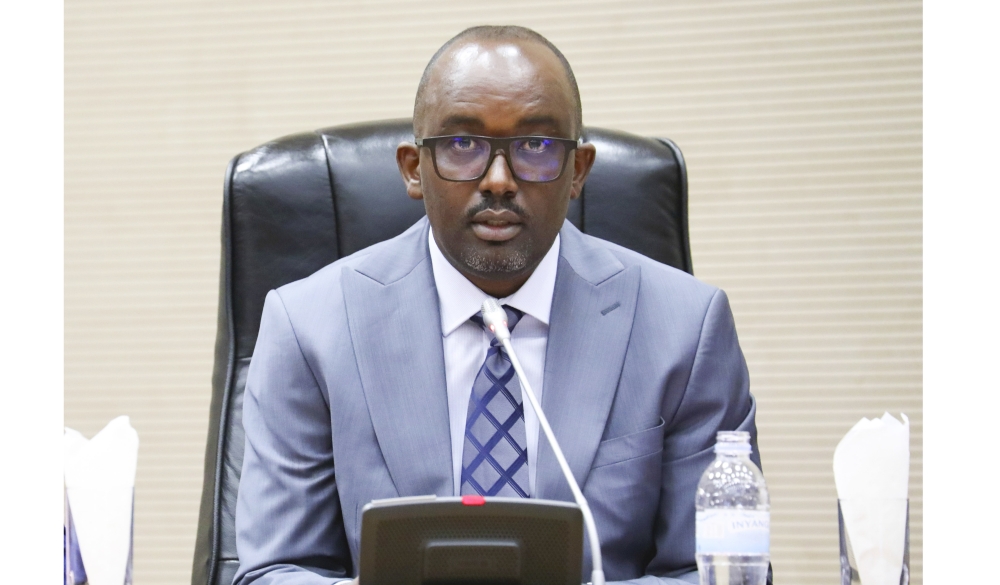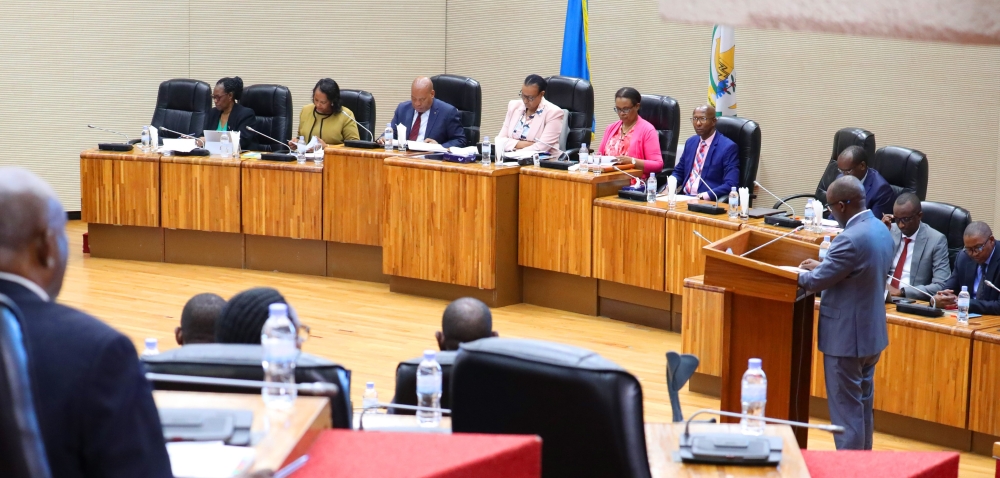

Unlawful expenditures decreased by 60 per cent while public entities that received clean audits went up, implying progress in public funds management, Auditor General (AG) Alexis Kamuhire said on April 24.
He made the observation while presenting a report of the Office of the Auditor General for state finances for the fiscal year that ended on June 30, 2023, to a joint plenary sitting of parliament.
The proportion of audited government expenditure went up by one percentage point to 96 per cent from 95 per cent in the previous year. For the year ended on June 30, 2023, with the OAG audited expenditures amounting to more than Rwf4.9 trillion, Kamuhire said.
The Auditor General indicated that unlawful expenditure dropped by 60 per cent compared to the previous year, decreasing to about Rwf2.5 billion from Rwf6.45 billion, meaning a more than two times reduction.


Unlawful expenditures include wasteful, unsupported, unauthorised spending and fraudulent use of funds.
"There is still a need for chief budget managers to put in place strong internal controls to avoid them [unlawful expenditures],” the Auditor General remarked.
Commenting on the development, MP Eugene Mussolini said, "I would like to commend the Office of the Auditor General in helping to prevent, such that we now realise that the national budget starts being [effectively] executed as unlawful spending reduced to only Rwf2.5 billion.”
Kamuhire indicated that the audits for the year under review covered 208 public entities and produced 255 reports. They include 222 financial and compliance audits, 16 performance audits, seven IT (information technology) audits, and 10 special audits.
The performance audits focused on the areas of national interest in agriculture, education, social protection, environment, investment, ICT, finance and economy sectors.
Compared to the previous year, there was a gradual improvement in audit outcomes.
"Regarding financial audit, 191 entities equivalent to 92 per cent, received unqualified audit opinions (clean audits), up from 68 per cent in the previous year,” Kamuhire said.
Similarly, he pointed out, entities receiving unqualified opinions in compliance audits of laws and regulations on public spending rose to 69 per cent from 61 per cent in the previous year, while for the principle of realising value for money [in compliance with the legislation), the entities receiving unqualified opinions increased to 59 per cent from 53 per cent.
"Overall, NST1 (National Strategy for Transformation) target to increase entities with clean audits from 50 per cent in 2016 to 80 per cent in 2024 was achieved in terms of financial statements, but there is a need for improvement in terms of compliance with legislation,” he said.
He attributed the registered progress to three factors, including compliance with public financial management (PFM) among the leaders of entities in question, the existence of a stable IFMIS system (Integrated Financial Management Information and System), and collaboration between public entities including the Office of the Auditor General on how to make better performance.
IFMIS Unit, under the Ministry of Finance and Economic Planning, is responsible for the design, development and implementation of IFMIS functionalities across government agencies by automating the execution and accounting processes for the effective public financial management, according to the ministry.
Slight progress in implementing Auditor General’s recommendation
On the implementations of his recommendations, the Auditor General said that the percentage of those that were fully implemented rose to 59 per cent from 57 per cent in the year before, implying a slight improvement.
Senator Pelagie Uwera appreciated "the good progress that continues to be made in terms of proper management of Rwandans’ assets whereby 96 per cent of the public expenditure was covered by the audits."
However, she called for greater improvement regarding the implementation of the Auditor General’s recommendations as 25 per cent of them were not executed.
Speaker Donatille Mukabalisa said that as provided for by the Constitution of Rwanda, the report will be forwarded to the parliament’s responsible committee [the Public Accounts Committee] so that it makes its in-depth analysis.
"The presentation of this report to parliament is in line with helping us in our responsibilities to oversee government activities. Therefore, the leaders of entities in which cases of public funds mismanagement were observed will be interrogated by parliament,” she said.


